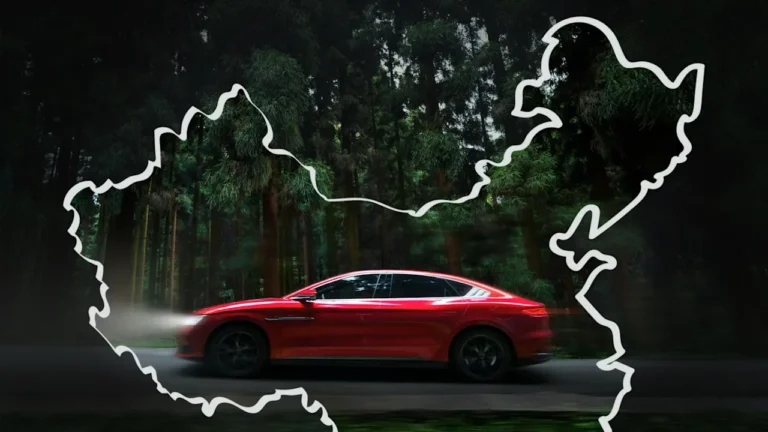Department of Defense/Screengrab via X
- The US carried out an airstrike on a suspected drug vessel in the Caribbean Sea earlier in the week.
- The strike targeted a Venezuelan organization and comes as the US ramps up pressure on drug cartels.
- It also marks a pivot away from traditional counter-narcotics operations in the region.
The US sent a message this week that it is willing to unleash tactics once reserved for distant battlefields — deadly strikes against suspected terror targets — much closer to home as it turns up the pressure on drug cartels.
A fatal strike on a suspected Venezuelan drug vessel in the Caribbean Sea earlier this week marked a radical departure from decades of counter-narcotics operations, moving from Coast Guard interdictions to a more lethal approach seen in the Middle East as part of the Global War on Terror.
The strike echoes the US counterterrorism campaigns, during which preemptive strikes proved effective but also raised questions over legality, rules of engagement, and due process.
Trump administration officials signaled that the devastating strike was only the start, with Secretary of State Marco Rubio telling reporters that “it’ll happen again.”
On Tuesday, he said that the US military conducted a “lethal strike” in the southern Caribbean Sea against a drug vessel that had departed from Venezuela.
President Donald Trump said the strike targeted members of the Venezuelan transnational criminal organization Tren de Aragua. He said that the US “positively identified” the boat operators, 11 of whom were killed in the strike. The vessel was said to be sailing in international waters, moving drugs toward the US.
“Please let this serve as notice to anybody even thinking about bringing drugs into the United States of America. BEWARE!” the president warned on his Truth Social platform.
Business Insider contacted the Department of Defense to ask how it determined the vessel was linked to Tren de Aragua and how the military carried out the strike against the boat. It has yet to receive a response.
The Trump administration has made it a priority to stem the flow of illegal drugs into the US, repeatedly signaling a more aggressive approach to go after cartels in Central and South America.
Earlier this year, the State Department designated Tren de Aragua as a Foreign Terrorist Organization, a term that, since the 9/11 attacks, has typically been reserved for terror groups in the Middle East, Africa, and Asia. Several cartels were listed alongside Tren de Aragua in February.
The earlier FTO designation and the nature of the recent strike suggest that the US is leaning toward a Global War on Terror-style campaign against cartels, potentially using a similar legal justification that it has used in the Middle East.
Brian McNamara, a former Coast Guard judge advocate who advised senior leaders on foreign-flagged and domestic vessel inspections, said it wasn’t clear if the strike marked a pivot in how the US plans to address counter-narcotics operations in the Caribbean or if it reflected political tensions between the US and Venezuela.
But “if this were to continue, this would be a paradigm shift in how the United States has carried out its military counter-drug operations for decades,” McNamara, now an adjunct associate professor of law at the Tulane School of Professional Advancement, told Business Insider.
A turn in tactics
Historically, US counter-narcotics efforts in the Caribbean have been viewed as a law enforcement operation led by the Coast Guard, either using its ships or through personnel based on Navy vessels.
These forces would intercept and board suspected drug-smuggling ships that originated in South America and detain the crew.
US Coast Guard photo
McNamara said “viewing it through a law enforcement frame provides for due process” and allows the US to respect the “generally accepted” public international maritime law principle that countries have exclusive jurisdiction over vessels flying their flag.
He said the Coast Guard’s leadership allows for a “collaborative approach — including international cooperation” and ensures that US actions against suspected smuggling vessels are carried out “thoughtfully” and usually with the consent of the vessel’s home nation.
Rubio told reporters on Wednesday that although the US had long relied on intelligence to interdict and stop drug boats, this process “doesn’t work.” The US Coast Guard and the Navy intercept hundreds of millions of dollars in illicit narcotics each year, but many shipments still slip through.
Instead of interdicting the suspected cartel vessel on Tuesday, American forces, acting on Trump’s order, “blew it up,” Rubio shared, adding that “it’ll happen again” because the president “is going to wage war on narcoterrorist organizations.”
Video footage shared by the US government showed what it described as the moment of the strike. A small vessel could be seen traveling in the water before being hit by an unidentified projectile and bursting into flames. The Department of Defense did not respond to a separate question about whether an attempt was made to stop the boat first.
McNamara said moving away from law enforcement to military action for counter-narcotics operations in the Caribbean brings risks for the US, such as inviting other nations to consider doing something similar to American vessels or a loss of credibility on international maritime issues.
“This is different than how I have understood US counter-narcotics operations at sea to work for decades,” he explained. “If this does signal a paradigm shift moving forward, I think the United States and this particular administration just need to be prepared to be able to manage the risks that are associated with the change.”
US Coast Guard photo
Former officials have also questioned the legality of the strike. Brian Finucane, a former State Department attorney who advised the government on counterrorism and the use of military force, said that the strike and subsequent assertion that this was only the start of a larger campaign “raise a number of significant potential legal issues.”
Finucane, now a senior advisor with the Crisis Group’s US Program, said in an article for Just Security that the FTO designation “does not by itself provide authority for the use of force,” even if it has previously been used to justify military action such as drone strikes. For now, the Trump administration has yet to offer a legal justification for the strike in the Caribbean.
Though the Trump administration is signaling a change in tactics, it remains to be seen whether this sort of action — targeting drug runners and not the real cartel leaders — will actually stem the flow of narcotics, as wins in the war on drugs have often been elusive and hard to come by.

